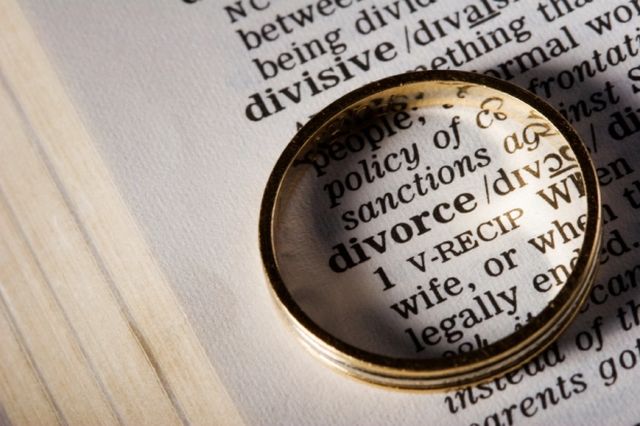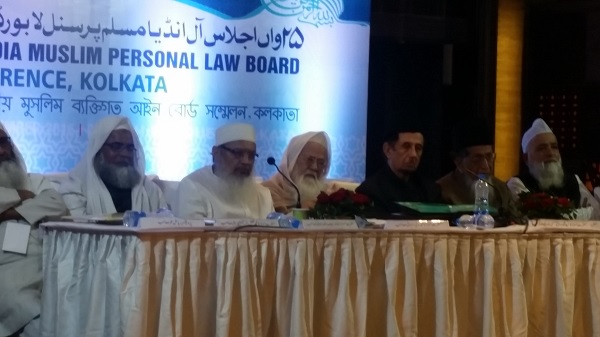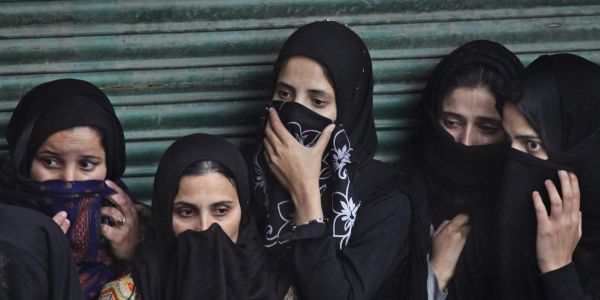
by Editor | May 25, 2021 | News
 New Delhi : The Holy Prophet Mohammad (SAW) had declared divorce to be the most disliked among the lawful things in the eyes of God as it broke the marital tie which is fundamental to family life in Islam, the Supreme Court yesterday said.
New Delhi : The Holy Prophet Mohammad (SAW) had declared divorce to be the most disliked among the lawful things in the eyes of God as it broke the marital tie which is fundamental to family life in Islam, the Supreme Court yesterday said.
Justice R F Nariman, who wrote one of the two separate majority judgements, said divorce not only disrupted the marital tie between man and woman, but had severe psychological and other repercussions on the children from such marriage.
Justice Nariman, whose views were concurred with by Justice U U Lalit, noted that marriage in Islam was a contract, and like other contracts, it could be terminated under certain circumstances.
“There is something astonishingly modern about this no public declaration is a condition precedent to the validity of a Muslim marriage, nor is any religious ceremony deemed absolutely essential though they are usually carried out,” he said.
“Apparently, before the time of Prophet Mohammad (SAW), the pagan Arab was absolutely free to repudiate his wife on a mere whim, but after the advent of Islam, divorce was permitted to a man if his wife by her indocility or bad character rendered marital life impossible,” Justice Nariman said.
In the absence of good reason, no man can justify a divorce “for he then draws upon himself the curse of God.
“Indeed, Prophet Mohammad (SAW) had declared divorce to be the most disliked of lawful things in the sight of God. The reason for this is not far to seek. Divorce breaks the marital tie which is fundamental to family life in Islam,” Justice Nariman said.
The five-judge Constitution bench, by a majority of 3:2 in which Chief Justice J S Khehar was in minority, said the practice of “‘talaq-e-biddat’ triple talaq is set aside“.
The two separate judgements, written for majority by Justices Kurian Joseph and R F Nariman, did not concur with the CJI and Justice S Abdul Nazeer that ‘triple talaq’ was a part of religious practice and the government should step and come out with a law.
—NNN-PTI

by Editor | May 25, 2021 | News

Maulana Syed Mohammad Wali Rahmani, general secretary of All India Muslim Personal Board, (AIMPLB), presenting secretary’s report.( File Photo Maeeshat)
By Maeeshat Correspondent,
New Delhi, Aug 23: The All India Muslim Personal Law Board (AIMPLB) has welcomed the Supreme Court order on instant Triple Talaq saying “it accords protection to Muslim personal law and says that personal laws cannot be tested by courts on the grounds of violation of fundamental rights.”
While declaring instant Triple Talaq invalid and unconstitutional, the constitution bench of the apex court on Tuesdaysaid that personal laws have status of fundamental rights.
“We, as a representative body, welcome the judgment of the Hon’ble Supreme Court since it accords protection to Muslim personal law and says that personal laws cannot be tested by courts on the grounds of violation of fundamental rights,” said AIMPLB in a statement.
“The majority (comprising Chief Justice J.S. Khehar and Justice Abdul Nazir, with Justice Kurian Joseph agreeing) has accorded personal laws the status of a fundamental right being protected under the right to practise religion contained in Article 25. This is a huge victory for us as the judgment vindicates our stand and ensures the fundamental right of citizens of this country to freely profess and practice their religious faith/beliefs,” the board said.
On the instant Triple Talaq being banned by the apex court, the board said it had already submitted to the court that it did not consider instant Triple Talaq as the best way or pronouncing Talaq and it had been discouraging the practice.
“We had already submitted to the court that the practice of three pronouncements of Talaq in one sitting, though it has basis in religious texts and belief thereon, is not the best way of pronouncing Talaq and various surveys suggest that it is seldom resorted to. For a long time, we ourselves have taken steps to discourage this practice through community reform programmes and Model Form of Nikahnama issued by the Board,” the board said.

by Editor | May 25, 2021 | News, Politics
 New Delhi : In a landmark judgment, the Supreme Court on Tuesday by a 3-2 decision struck down the centuries-old practice of instant triple talaq among Indian Muslims as unconstitutional, manifestly arbitrary and void in law.
New Delhi : In a landmark judgment, the Supreme Court on Tuesday by a 3-2 decision struck down the centuries-old practice of instant triple talaq among Indian Muslims as unconstitutional, manifestly arbitrary and void in law.
However, the minority judgment concluded that “talaq-e-biddat” was a matter of personal law of Muslims that does not breach the Constitution’s Article 25 (right to practice one’s religion).
Chief Justice J.S. Khehar and Justice S. Abdul Nazeer constituting the minority in the five-bench Constitutional bench ordered an injunction on triple talaq at least for six months — by when the government should consider steps to initiate legislation on the issue.
The other three judges disagreed.
“In view of the different opinions recorded, by a majority of 3:2 the practice of talaq-e-biddat – triple talaq – is set aside,” the bench comprising Justices Khehar, Kurian Joseph, Rohinton F. Nariman, U.U. Lalit and Abdul Nazeer said in the concluding para of the 395-page ruling.
The apex court gave its judgment on a petition filed by Muslim woman Shayara Bano, joined by a Muslim group and four other women.
Justice Nariman and Justice Lalit, who were part of the majority judgment, said: “Given that triple talaq is instant and irrevocable, it is obvious that any attempt at reconciliation between the husband and wife by two arbiters from their families, which is essential to save the marital tie, cannot ever take place.
“…This being the case, it is clear that this form of talaq is manifestly arbitrary in the sense that the marital tie can be broken capriciously and whimsically by a Muslim man without any attempt at reconciliation so as to save it.
“This form of talaq must, therefore, be held to be violative of the fundamental right contained under Article 14 of the Constitution,” they said, adding the 1937 Shariah Act must be struck down.
In a concurring but separate judgment, Justice Joseph said: “What is held to be bad in the Holy Quran cannot be good in Shariat and, in that sense, what is bad in theology is bad in law as well.”
He said he found it extremely difficult to agree with the Chief Justice that triple talaq has to be considered integral to the religious denomination and it was part of their personal law.
He said merely because a practice has continued for long, that by itself cannot make it valid if it has been expressly declared to be impermissible.
He said when issues of such nature come to the forefront, the discourse often takes the form of pitting religion against other constitutional rights.
In his minority judgment, Justice Khehar said it would not be appropriate for the court to record a finding whether talaq-e-biddat was or was not affirmed by Hadiths (Prophet’s sayings) in view of the enormous contradictions in the Hadiths relied upon by rival parties.
“Talaq-e-biddat is integral to the religious denomination of Sunnis belonging to the Hanafi school. The same is a part of their faith, having been followed for more than 1,400 years, and as such, has to be accepted as being constituent of their ‘personal law’.”
“The … practice cannot therefore be set aside … through judicial intervention.”
The minority judgment observed that there was seemingly an overwhelming majority of Muslim women demanding that triple talaq, “which is sinful in theology, be declared as impermissible in law”.
The judges noted that during the hearing, learned counsel appearing for the rival parties described the practice as unpleasant, distasteful and unsavoury. Others called it disgusting, loathsome and obnoxious.
The minority judgment said religion was a matter of faith and not of logic and it was not open to a court to accept an egalitarian approach over a traditional practice.
They said it was not for a court to determine whether religious practices were prudent or progressive or regressive.
The judges said the stance adopted by the Union Government supports the petitioners’ cause and observed: “Unfortunately, the union seeks at our hand, what truly falls in its own.”
—IANS

by Editor | May 25, 2021 | News, Politics
 New Delhi : The Supreme Court is likely to pronounce on Tuesday its verdict on the constitutional validity of triple talaq – a practice already described by All India Muslim Personal Law Board (AIMPLB) as “horrendous”, “sinful” and “undesirable” which had no sanction of Holy Quran and Shariat.
New Delhi : The Supreme Court is likely to pronounce on Tuesday its verdict on the constitutional validity of triple talaq – a practice already described by All India Muslim Personal Law Board (AIMPLB) as “horrendous”, “sinful” and “undesirable” which had no sanction of Holy Quran and Shariat.
The five-judge bench of Chief Justice Jagdish Singh Khehar, Justice Kurian Joseph, Justice Rohinton Fali Nariman, Justice Uday Umesh Lalit and Justice S. Abdul Nazeer will pronounce verdict on the validity of the contentious custom which is in practice for last 1,400 years but illegal in many Islamic countries.
The hearing, spread over five days from May 12 to May 18, was rooted in the apex court’s October 16, 2015 order directing the separate listing of a PIL addressing the question of the rights of Muslim women.
At the outset of the hearing, the court had made it clear that it would not examine the validity of anything that formed an intrinsic part of Islamic religious practices – thereby ousting any submissions on polygamy.
The court had framed three questions to be addressed by all the parties that included whether triple talaq was fundamental to Islam, whether it was sacrosanct to Islam and whether the practice was an enforceable fundamental right.
In the course of the hearing, the AIMPLB issued an advisory to telling the qazis to give an option to Muslim women to opt out of instant triple talaq before giving consent for ‘nikah’.
In their affidavit before the court, they said that qazis all over the country have been instructed that they would while performing nikah, record in the Nikahnama, that the bride has opted out of triple talaq in one sitting.
Senior counsel Salman Khurshid, who was assisting the court in the matter, had said that “What was sinful in theology, can’t be good in law”.
“It (triple talaq) is not only not an essential part of Muslim religion, it is not a part of religion at all. On the contrary it is depreciated by Islam,” he said.
However, the court was not appreciative of the government position that the top court should first pronounce on the constitutional validity of the triple talaq and other forms of talaq, only then it would bring a law.
“We may or may not (decide the issue), but you do,” Chief Justice Khehar had said when the Central government told the court that it should step in a situation where there is no legislation.
While founding its case on gender equality, the government had linked the issue of triple talaq with that of constitutional morality, but the court termed its position a “whitewash”.
As the Centre sought to flag the issue of gender equality of Muslim women vis-a-vis women in other religions and in Islamic countries, the AIMPLB asked it to bring a law taking recourse to Article 25 (2)(b) of the Constitution that permits enactment of law invoking social reforms.
However, AIMPLB had cautioned the constitution bench that “testing the validity of customs and practices was a slippery slope”.
—IANS

by Editor | May 25, 2021 | Opinions
 By M. Burhanuddin Qasmi
By M. Burhanuddin Qasmi
Hon’able Supreme Court has finished hearing on the Triple Talaq today. It was the 6th and the final day of hearing. Now the Court will give its verdict anytime in near future which will be very important for India, Indian Muslims and future of India. It may take some time for the learned Bench of 5 Judges to go through all the details of arguments and counter arguments from all three sides – applicants, Union Govt. of India and the Muslim personal law defending NGOs – All India Muslim Personal Law Board (AIMPLB) and Jamiat Ulama-e Hind.
To my understanding the SC has asked in its opening remarks in the first day, ‘is the issue of Triple Talaq a religious part of Islam’? It further stated that it will hear only Triple Talaq in one go for the time being and not Triple Talaq in three periods or one irrevocable Talaq. It also said in its opening remarks that now it will not touch polygamy, bigamy and Halala issues.
The learned Court, reportedly, indicated further that if Triple Talaq in one go is proven to be an internal part of Islam, then it may not go to interfair into Islam’s internal practices.
Now at the end of the hearing, what we could understand as commoners by going through various media reports and talking to people connected with Muslim personal law respondents that the applicants have mainly based their cases on male-female inequality, social and personal degradation of Triple Talaq victims and unjust behaviour of husband and in laws. They tried to prove that Triple Talaq never exists in Islam and it is an unIslamic innovation.
The first responded- Union of India has also mainly argued on gender inequality, women rights etc. but it went beyond Triple Talaq in one go. The summary of Government’s argument seems to be as if it is not much interested on instant Triple Talaq rather it feels Islam’s system of divorce needs to be readress afresh. And the Union Govt. is willing to bring about new laws “to support” Muslim women.
I think both the defending respondents’ advocates have done their job professionally well. With a few exceptions they were strictly within the questions raised by the Hon’able SC. AIMPLB has statistically proven that instant Triple Talaq is not at all a common practice among Muslims as being made an issue with unprofessional and negative media campaigns. These uncalled for incidents are less than point five (0.5) per cent in all divorce cases among Muslims. It is an entirely personal and religious issue for Muslims, being practiced from the very inception of Islam and as per the rights guaranteed in the Constitution of India, this Hon’able Court should not interfere into any religious group’s personal affairs.
On the other hand Jamiat has proved that Triple Talaq is a part of Islam’s civil life and it is clearly doctrined from Qur’an and Sunnah. There may be differences among different schools of thoughts within Islam – either three talaq is one or three, but entire Islamic world is unanimous that Triple Talaq exists and it has its affect as one or irrevocable three. In case of an internal difference within Islam on textual grounds, the Hon’ble SC has no locus to interfere or explain the Qur’anic text.
Jamiat has also put it well quoting from Islamic Texts that marriage is among the work of worship in Islam, without it no man and woman can live as wife and husband, rather it will be considered as adultery and a heinous crime. When a marriage is broken as per Islam, the Hon’ble Court should not force any individual citizen to commit crime, at least those who believe and practice on that explanation of Shariah.
To my understanding the SC might find the defending arguments strong enough to give any clear verdict against them. I am afraid, it may take an unexpected stand and ask the Union Government to bring about its new law on divorce in Islam. Here the Govt. will win, the original Triple Talaq victims may find as cheated and used, and the defending Muslim NGOs will count a heavy waste of their energy and resources.

 New Delhi : The Holy Prophet Mohammad (SAW) had declared divorce to be the most disliked among the lawful things in the eyes of God as it broke the marital tie which is fundamental to family life in Islam, the Supreme Court yesterday said.
New Delhi : The Holy Prophet Mohammad (SAW) had declared divorce to be the most disliked among the lawful things in the eyes of God as it broke the marital tie which is fundamental to family life in Islam, the Supreme Court yesterday said.



